Good health is one of those things that we all tend to take for granted.
As we get older this naturally changes as we develop more daily aches and pains, but for young people with no prior conditions, a developing health problem can be easy to ignore or downplay, especially if the symptoms don’t seem too scary.
That’s why it’s so important that young people everywhere become aware of the incredible danger that meningitis poses to their health.
Meningitis is an inflammation of the membranes in the brain, and is both lethal and fast-moving.
When you’re young, you often think you’re invincible, but meningitis is one of those illness that targets the young. The symptoms of meningitis are fairly common in children and babies, and can also run rampant among teens and young adults, especially in a close-living environment like a dorm or shared house.
That’s why a young woman named Charlotte Hannibal is coming forward to share her experience with the devastating illness, and to educate her peers about how to catch the signs and symptoms of meningitis early.
Scroll through the gallery below to learn more about her life-altering brush with the illness.

Charlotte Hannibal, of Nottinghamshire in the UK, was just like any other teenage girl when she started at university last year.
She lived with a whole crowd of other young people, and she was highly social. She went out with friends at least once a week.
It's a lifestyle not far removed from the American college culture of frat parties and bar crawls, and is common and accepted among young people across the world.

But in Hannibal's case, an active and exuberant social life led directly to a near-death experience that changed her life forever.
One weekend night, Hannibal went out to a house party with friends. The next day, she woke up feeling sick, but attributed her illness to catching a cold or the flu from a fellow partygoer.
She wasn't far off when she traced her illness to the party, but she had drastically underestimated the severity of her condition; she had bacterial meningitis.
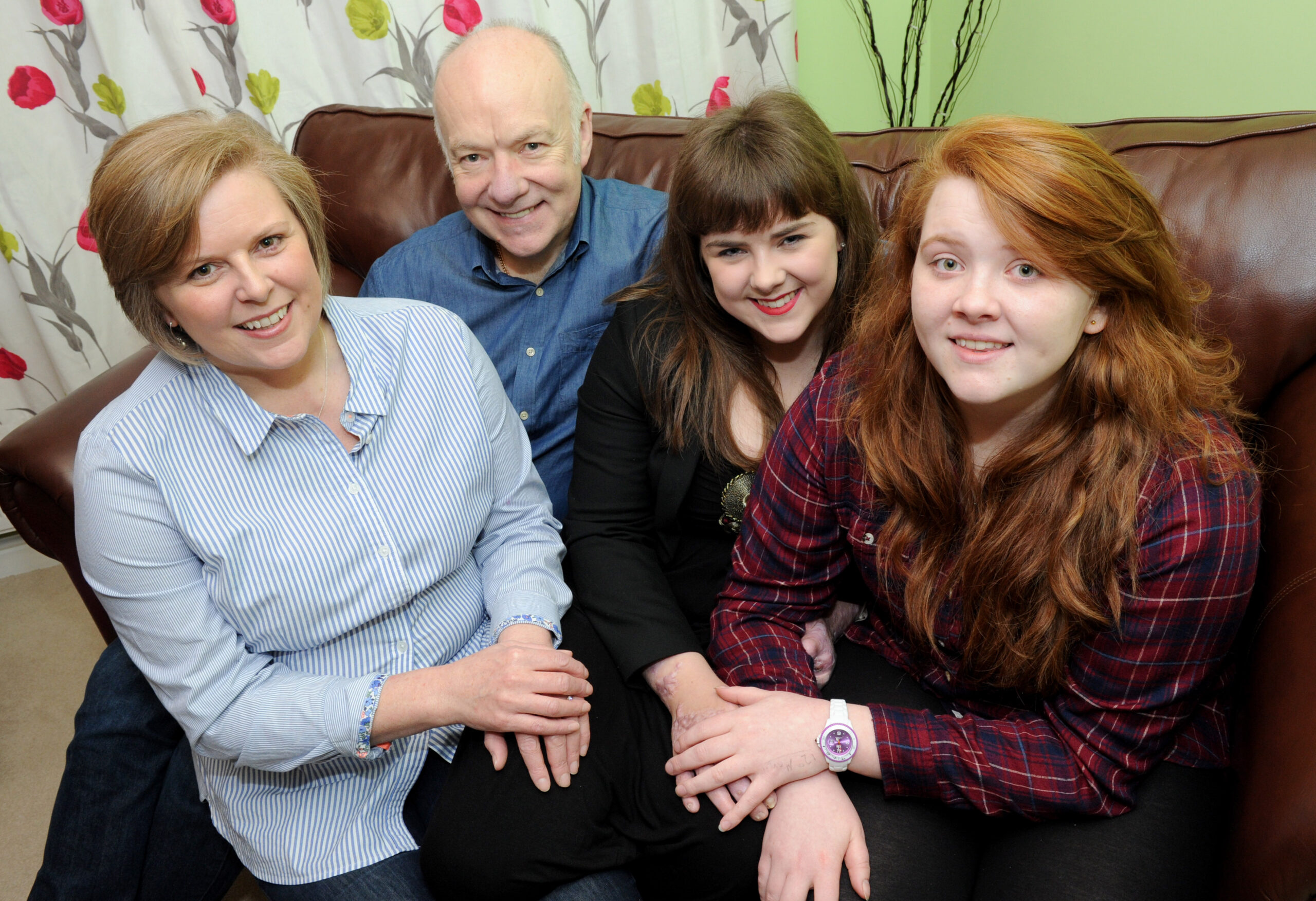
By Monday afternoon, she was too sick to attend her classes, and by Tuesday, Hannibal called her father and asked him to come and get her.
Her dad picked her up straight away, but the whole Hannibal family — Mom, Dad, and little sister Sophie — was alarmed by how sick their eldest daughter seemed.
Worried, they decided to take her to a walk-in clinic nearby, an act which probably saved her life.
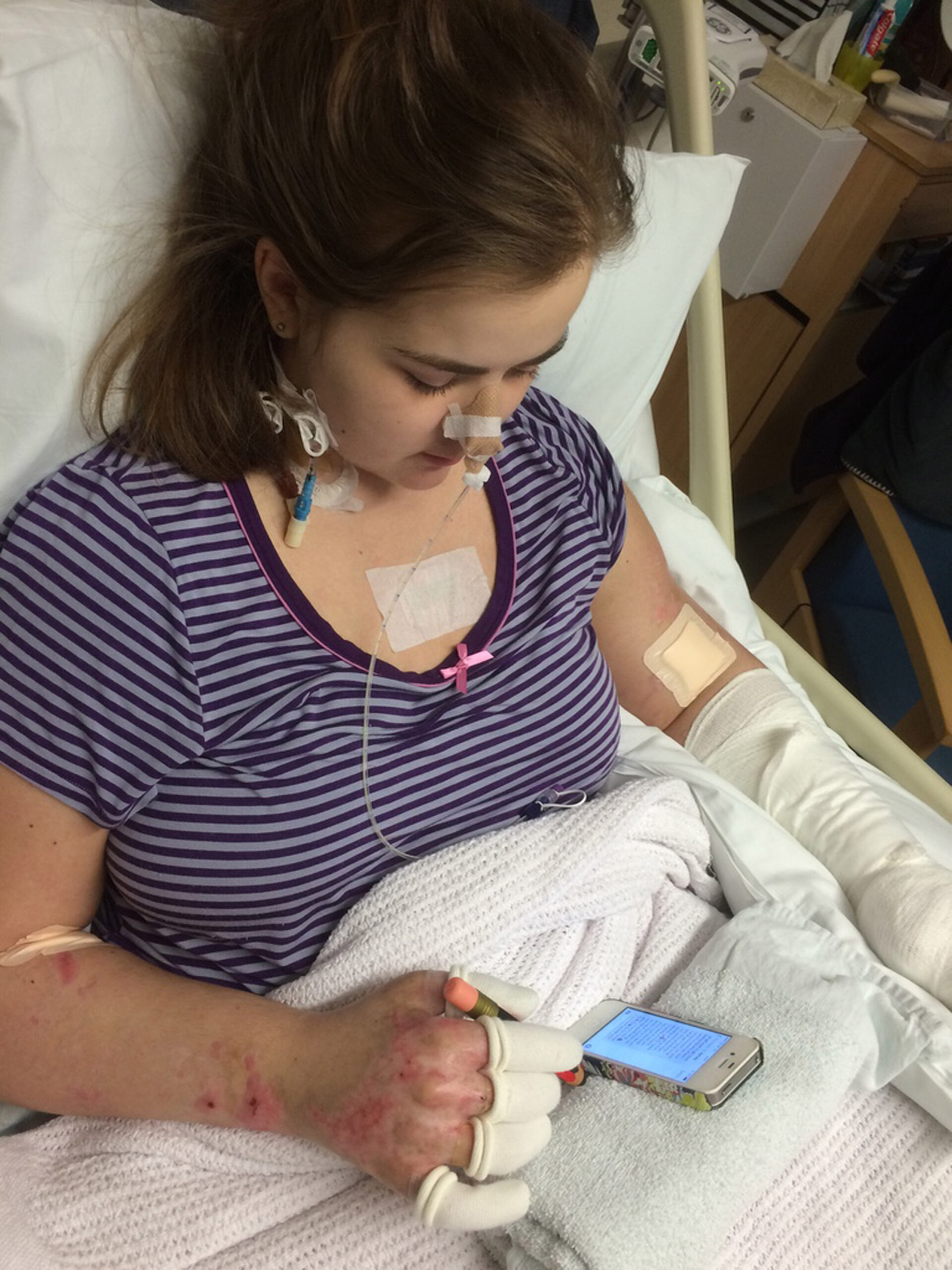
According to the Daily Mail, Hannibal said that by Tuesday, "My hands and feet felt really cold but then my stomach started to bloat too, I didn't know it then but my kidneys were shutting down."
At the clinic, they immediately noticed the hallmarks of meningitis, including nausea, joint stiffness, and sensitivity to light, and had Hannibal transferred to the ICU of a nearby hospital. By this point, just a few days after first starting to feel ill, she was no longer able to walk.
Doctors in the ICU diagnosed meningitis and septicemia, also known as blood poisoning, which is a life-threatening complication of meningitis.
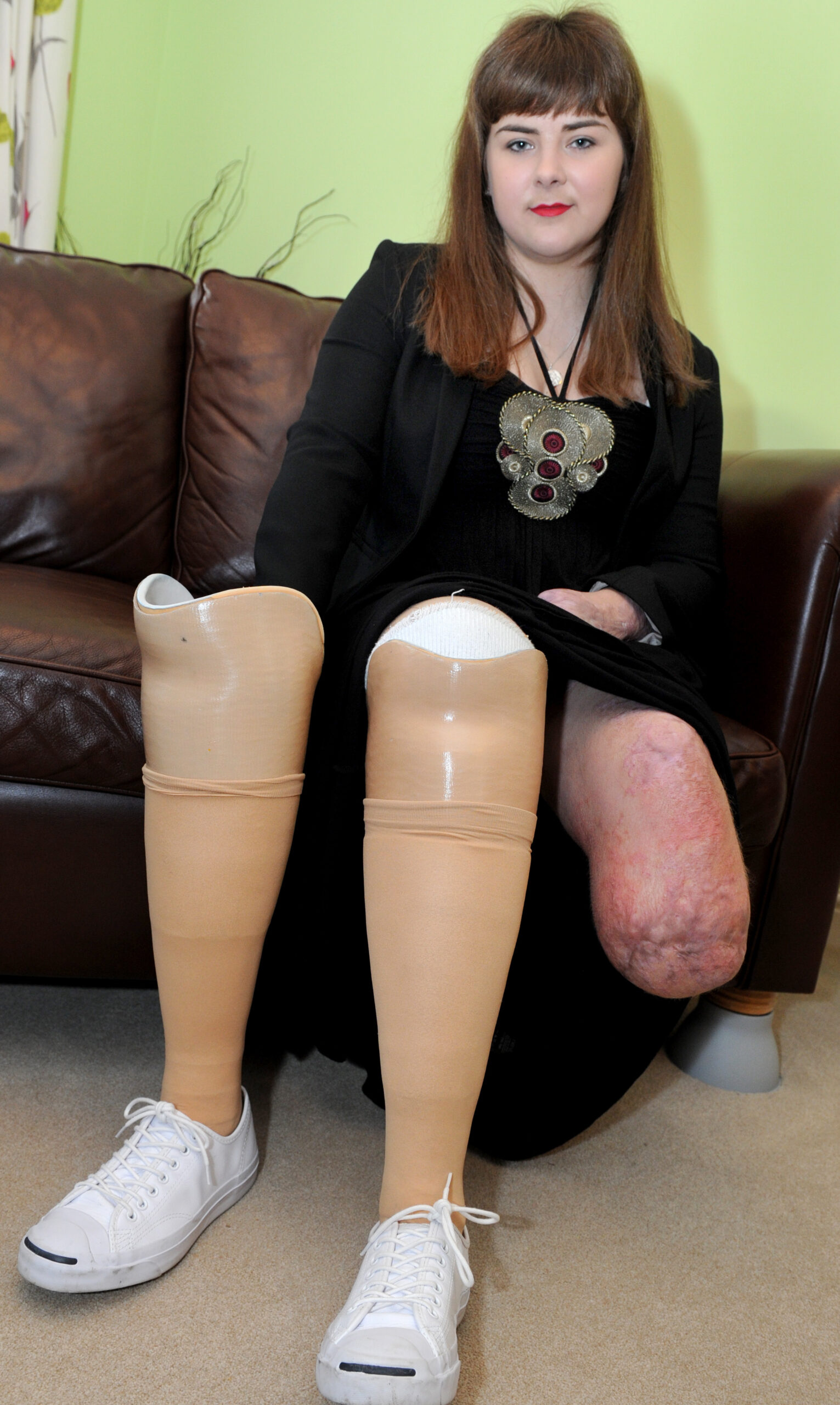
After being admitted to the ICU, Hannibal spent 17 days in a medically induced coma, fighting to recover as her organs failed.
Doctors were able to keep her alive and bring her out of the coma, but the septicema was proving stronger than her treatment, and was causing necrosis, where parts of the body begin to die.
Her feet, fingers, and the tip of her nose turned black, indicating necrosis; two months into her hospitalization, Hannibal's doctors made the tough decision to amputate both of her lower legs and several of her fingers to contain the bloodstream infection and allow her vital organs to heal.
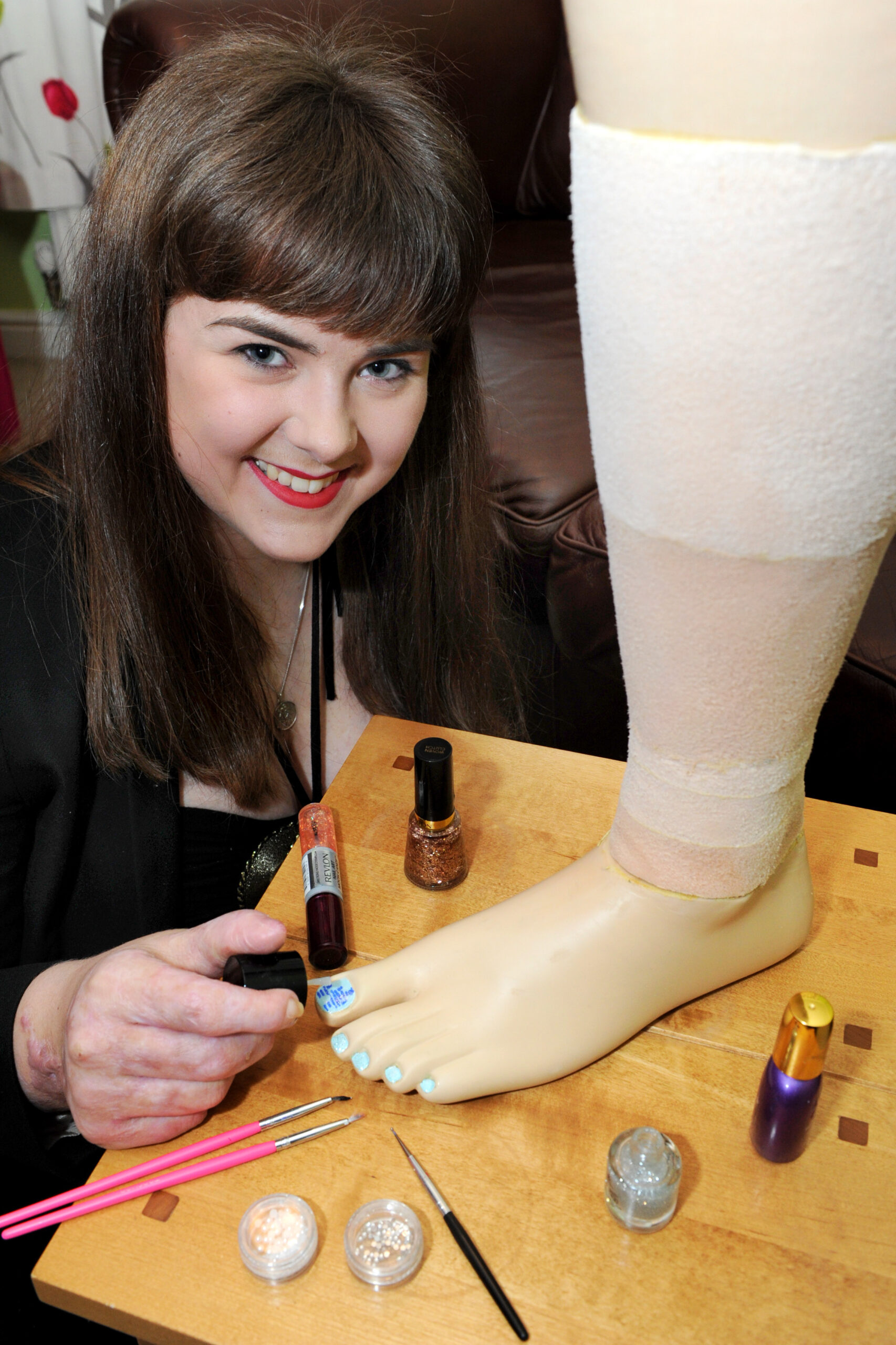
Now, a year after her terrifying brush with death, Hannibal is doing well.
She uses prosthetic lower legs, and has even perfected the art of giving her prosthetic feet pedicures with her good hand.
She has scars on her extremities from the illness, and her kidneys are no longer functional.
For now, she is on dialysis, awaiting a kidney transplant to help her regain full organ function.
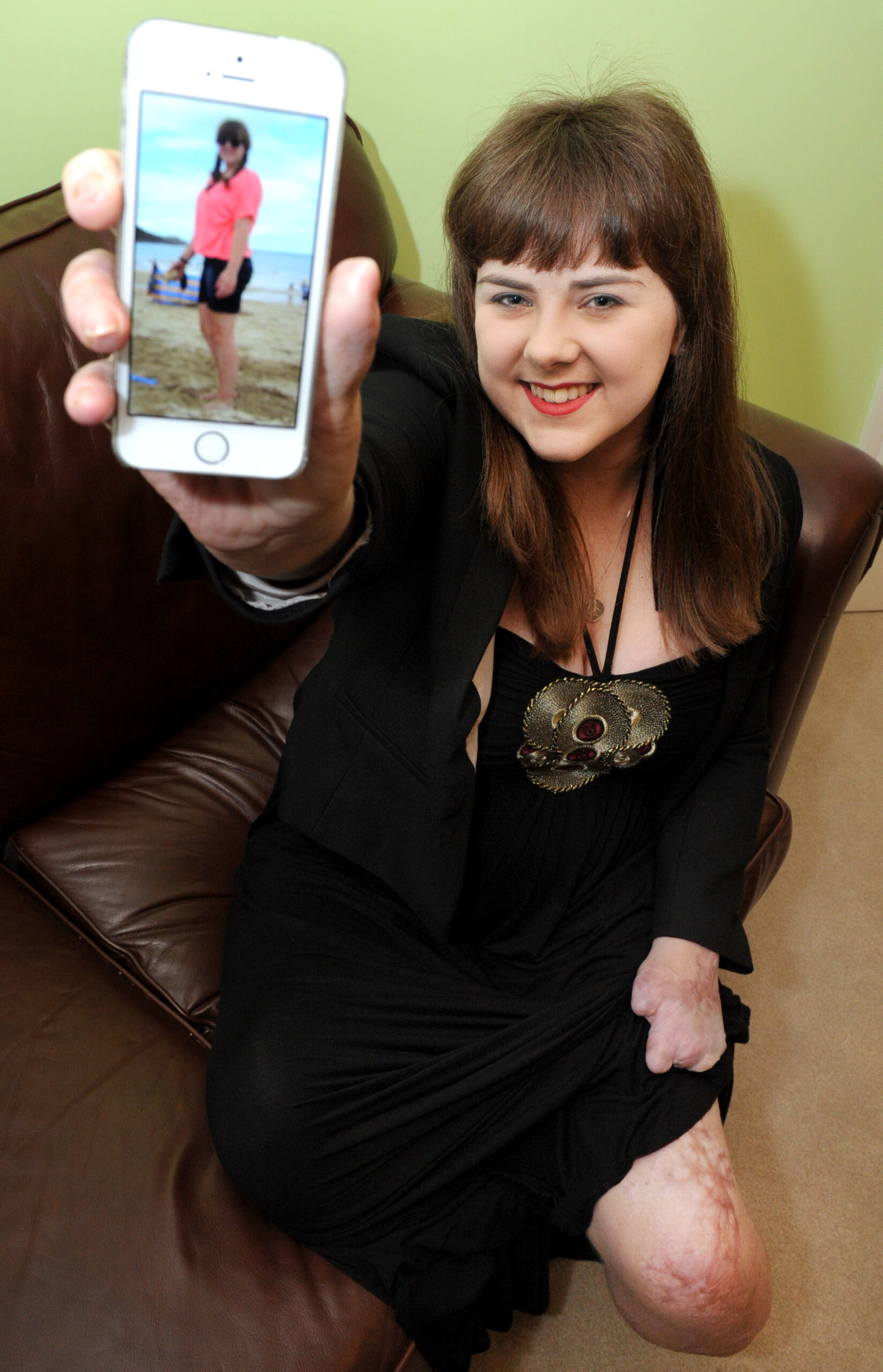
Despite the dramatic changes to her body, Hannibal is refusing to let her lost limbs or her dialysis slow her down. Rather, she is grateful, because she's now painfully aware of the incredible danger she faced.
"I feel incredibly lucky though, I'm still alive and although I've lost both my lower legs and fingers, some people have lost a lot more,"she told the Daily Mail.
She made an understandable mistake when she thought her nausea and aches were just a case of the flu, but now she knows that meningitis can spread quickly in a young population that lives closely together, and she wants to use her experience to educate fellow students.
She is actively campaigning for the organization Meningitis Now, raising money for research, and seeking to educate others about the symptoms of the disease, and the lifesaving importance of getting vaccinated against meningitis.
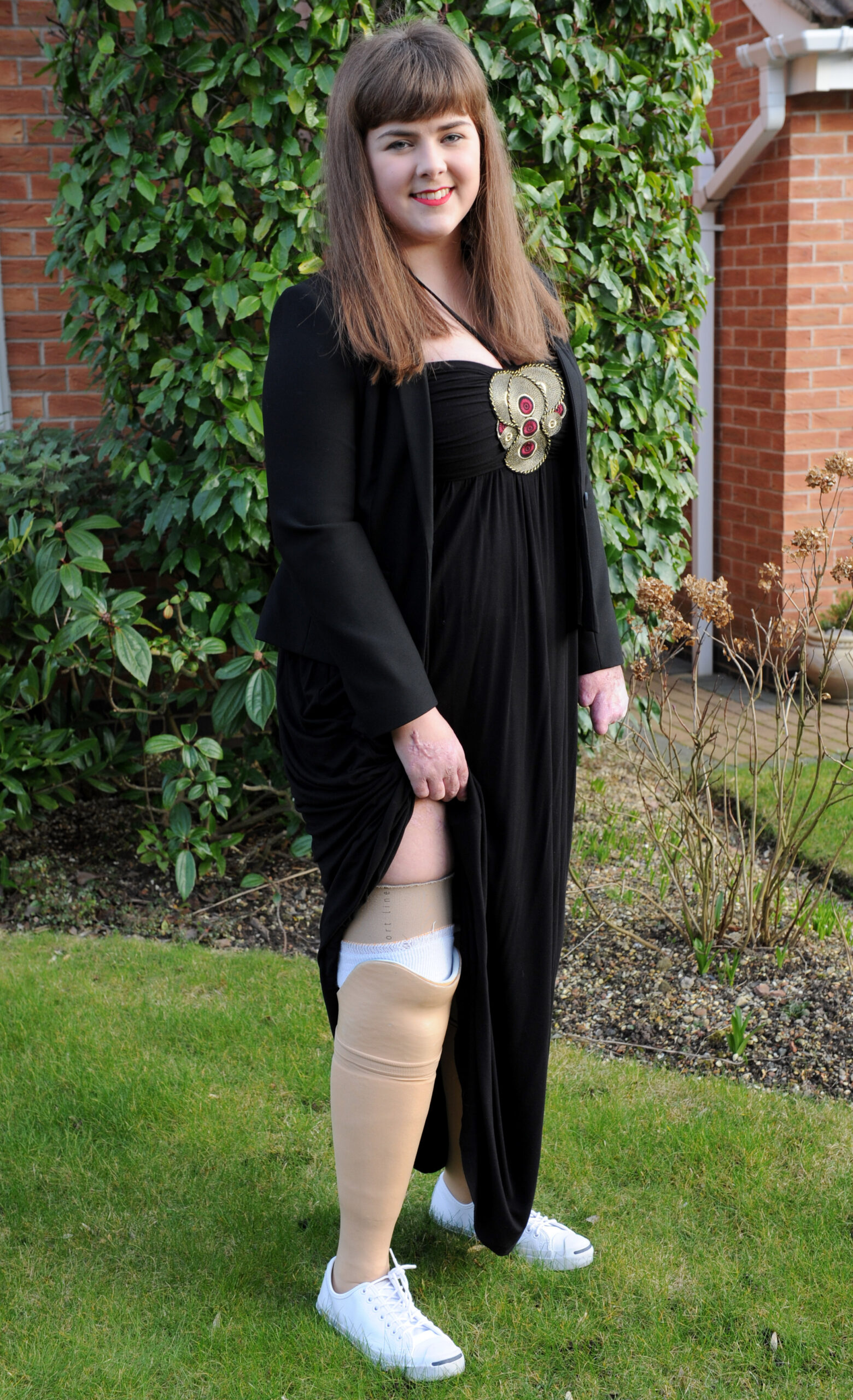
Currently, the CDC recommends that all preteens get the quadrivalent meningitis vaccine, which targets the four most aggressive strains of the illness (A,C, Y, and W), and then receive a booster shot in their later teen years. Teens and young adults should also get the meningitis B vaccine.
All teens and adults should know to watch out for the following symptoms. Seek medical help immediately if you experience:
- Stiff neck
- Sensitivity to light
- Nausea and vomiting
- Cold hands and feet
- Sudden high fever
- Severe headache
- Confusion or disorientation
Learn more about how to spot, treat, and prevent meningitis at Meningitis Now.
Please make sure to SHARE Charlotte Hannibal's story to promote awareness and make sure young people know how to check for the symptoms of meningitis.




